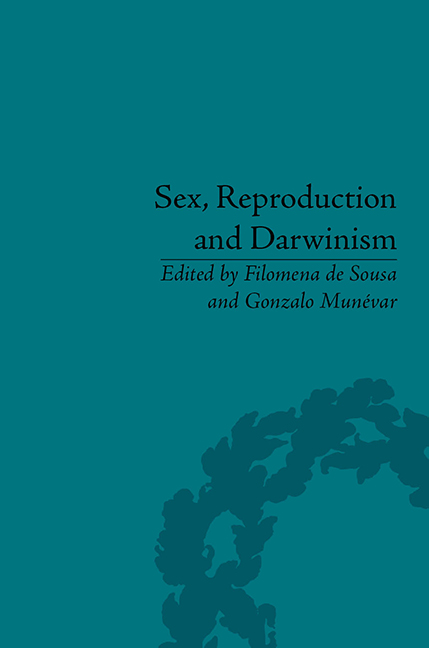Book contents
- Frontmatter
- CONTENTS
- Acknowledgements
- List of Contributors
- List of Figures and Tables
- Introduction
- Part I Reproduction, Mortality and Evolution
- Part II Reproduction without Sex?
- Part III Sex without Reproduction?
- Part IV Sexual Selection and Morality
- Part V Sex, Reproduction and Evolutionary Psychology
- Part VI Eugenics from Natural to Social Selection
- Notes
- Index
Introduction
- Frontmatter
- CONTENTS
- Acknowledgements
- List of Contributors
- List of Figures and Tables
- Introduction
- Part I Reproduction, Mortality and Evolution
- Part II Reproduction without Sex?
- Part III Sex without Reproduction?
- Part IV Sexual Selection and Morality
- Part V Sex, Reproduction and Evolutionary Psychology
- Part VI Eugenics from Natural to Social Selection
- Notes
- Index
Summary
The purpose of Sex, Reproduction and Darwinism is to bring together scholars from a variety of disciplines in biology, the humanities and the social sciences to take a fresh look at some of the main Darwinian themes concerning sex and reproduction. Sexuality and reproduction are, of course, central to evolutionary thinking and, in turn, have come to be conceptualized differently because of developments in evolutionary thinking.
In recent years, and particularly on occasion of the 150th anniversary of the publication of Charles Darwin's On the Origin of Species (1859) in 2009, the scholarly and the educated public have been treated to the publication of many books on evolution, including the complete collection of Darwin's works by Pickering & Chatto, and the publication of several international conference proceedings in honour of Darwin's thought. Darwin's thought and the scientific revolution it has wrought, however, spans over such a wide intellectual spectrum that no single volume can possibly attempt to do it justice. Our book thus focuses on two basic concepts in Darwin's approach to biology: sex and reproduction. Although by contrast with, say, the recent volumes on conference proceedings, the focus of our book is narrower, this is by no means a disadvantage. Experimental discoveries and theoretical investigations of sex and reproduction, some made by the authors of this book, have significant implications for our understanding of evolution and for establishing the relationship between evolution and other areas of human endeavour.
- Type
- Chapter
- Information
- Sex, Reproduction and Darwinism , pp. 1 - 8Publisher: Pickering & ChattoFirst published in: 2014



